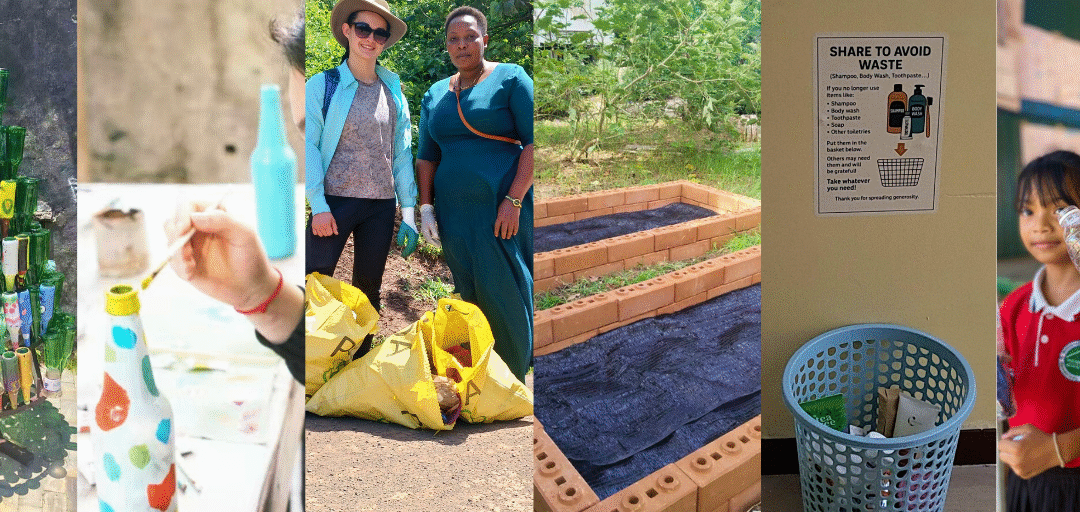This May, our sustainability drive turned to reducing waste around our centers worldwide.
Every choice we make, what we consume and what we throw away, has an environmental consequence. Effective waste management reduces pollution and protects ecosystems, and also cuts down on resource use and operational costs. By integrating smart waste practices into our programs, we show that sustainability is about action, not just intention.
Waste management directly connects to Sustainable Development Goals (SDGs) 11, 12, and 14, and indirectly supports all 17 SDGs. The UN warns that global waste could increase by 77% by 2050. Without a shift in how we produce and consume, the impacts will be severe—for our oceans, our health, and the planet. That’s why our ongoing efforts are more important than ever.
By empowering travelers and communities to be part of the solution, we’re not only reducing waste, we’re creating ripples of change that go far beyond a single trip.

Global Impact, Local Actions
Across our centers, teams took steps to reduce, reuse, and recycle. From educating participants about plastic waste to implementing waste separation and reusing materials at our sites, every small action contributed to a bigger goal.
- Education & Awareness: Sustainability sessions and weekly challenges help participants and staff adopt habits like using refillable bottles, reducing plastic, and reusing materials.
- Waste Separation & Recycling: All sites practice waste sorting—recyclables, compost, and landfill—alongside creative recycling (eco-bricks, decorative glass reuse, planter containers).
- Food Waste Management: Meal sign-ups, composting, feeding animals with leftovers, and circular gardening help minimize food waste.
- Reuse & Upcycling: Items like clothing, furniture, jars, containers, and even cardboard boxes are repurposed for storage, décor, and activities.
- Sustainable Systems: Refillable soap and detergent, reusable kitchenware, steel lunchboxes, cloth bags, and laminated worksheets reduce single-use products.


- Smart Purchasing & Planning: Bulk buying and planned meals reduce packaging and prevent excess food waste.
- Infrastructure & Innovation: Some centers feature unique builds using recycled materials—like houses made of 20,000 glass bottles—and continue to develop new upcycling ideas.
- Community Impact: Local cleanups, signage, and recycling profits are used to buy seeds or plants, involve and benefit the wider community.
- Policy & Energy Efficiency: Policies limiting plastic, reducing printing, and optional linen changes support long-term sustainability.





